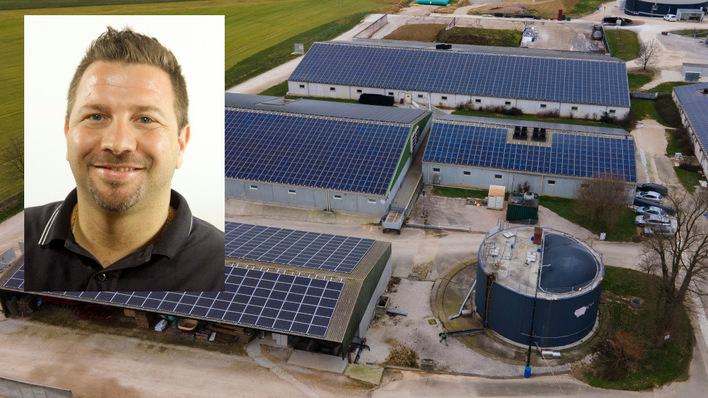With the end of the year in sight is a good time for taking stock: How has 2018 been for Talesun?
Eva Belletti: Excellent. We were able to once again, for the second year running, double our turnover in Europe. We have sold a lot, about 450 megawatts. Our turnover came to about 100 million euros.
Which markets are particularly interesting at the moment?
Germany is going very well, and also in France, the Netherlands and Spain our business has been going very well. Very recently, we had a large shipment to Portugal. That growth is set to continue, since we are now no longer hampered by the anti-dumping proceedings. That creates opportunities that were previously not open to us. And many markets no longer depend on politically mandated feed-in tariffs, but are based on PPA, such as in Spain. The markets are growing more stable and not so crazy like they used to.
What role do falling prices play in the opening of new markets?
Granted, the prices for panels have been falling quite a bit. My hope is that prices will level out, after all we are quite near the bottom. I do not see that much room further down. As a contractor, we would, of course, like to see a 1 in front of the decimal point. That makes projects even more profitable. But it would become difficult for us as a manufacturer of solar panels. Less than 20 euros cents is actually quite painful – we have to find a compromise there.
Do you have any information on whether the Chinese market might gather speed again?
Our parent company has reported such discussions, but there is nothing hard and fast. What is clear is that China urgently needs cheap solar power. And there still is sufficient production capacity to meet that increasing demand in China.
Do you have any panels in stock?
Currently, we are sold out. The panels that we are delivering now were pre-ordered. Any order that comes in soon will be delivered by January or February. And of course, we know that many customers in Germany want to connect their power plants to the grid as soon as possible. But a bit of a wait is unavoidable.
How large are Talesun’s factories in Asia?
Our production capacity is now at up to 5,000 megawatts per year.
Which of you panels is selling the best?
Our 270/275 watt panel – the TP660P – which makes up about 80 percent of our production. The is our most produced panels by quite a margin, because it is very popular among our customers.
How will demand develop in the first quarter of 2019?
That will strongly depend on whether the imminent ‘Energiesammelgesetz’ will actually be in force starting in early January or will have a longer transitional period. And also what form the planned cuts to the feed-in tariffs will eventually take. I can see the high demand continuing for the first quarter. If the legislation does not come into force until the summer, the next two quarters are going to be exciting. Germany has quite a few large-scale projects that are to be built through PPA. Some as large as 100 megawatts. These customers have already contacted us.
Do the enquiries and orders allow you to determine whether there is rising demand for monocrystalline panels?
In 2018, that was a clear trend: Customers demand more mono-panels. And that both in the project-based segment and from installing companies for smaller rooftop installations. The difference in price between poly- and monocrystalline panels is no longer as much as it used to be, and so the latter are increasingly used for larger installations.
And glass-glass panels?
We also offer glass-glass panels, and demand is increasing there as well. But they still are much less significant to us.
Overall, what can 2019 bring for you?
I hope that we will remain stable when it comes to solar panels, in spite of the falling prices. We want to continue to grow in the project-based segment. We have a number of partners, together with whom we are active in growth markets, such as Italy. Of course, the projects in that pipeline will be built using our own panels. We want to open an office in Madrid, so we can have access to the Spanish and South American markets. We have projects going in Argentina on the order of 300 megawatts. Spain is also mostly about large-scale rooftop projects and greenfield installations.
How about the Middle Eastern markets?
Munich is our hub for servicing the markets in Turkey, the Middle East as well as Africa. Because we conduct our business in US dollars, turnover in Turkey has been very good. But in order to get your foot in the door in Turkey, you have to drink a lot of coffee and tea with the potential customers. That we did. There is a similar situation in the Arab world. Projects there take much more time than in Germany or in Spain.
How many employees do you have in Europe?
In Munich there are 13 or 14 people, along with about 15 sales representatives for the various markets. We have offices in Milan, Antibes, London and Istablul. And as I said, next year we hope to open another one in Madrid. (HS)
Keep up with innovation in PV! Watch our PV Guided Tours at The Smarter E Europe in Munich:
https://www.pveurope.eu/Videos/pv-Guided-Tours-videos-2018
Stay informed, get our newsletter twice a week.
Register here: https://www.pveurope.eu/Newsletter
Read more about solar modules.
Read more about solar mounting systems.
Read more about solar energy storage.







